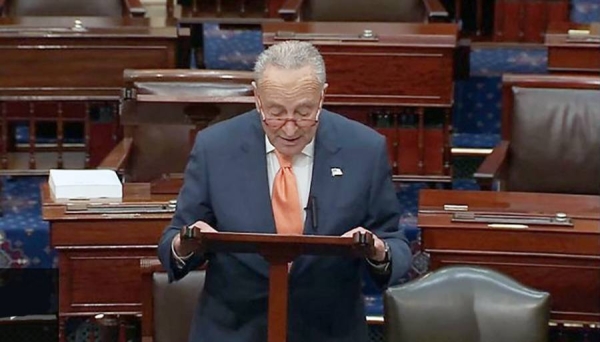
Business leaders and trade unions have urged the government to strike a last-minute Brexit agreement as they warned that the UK economy is ill equipped for a disruptive no-deal scenario.
With talks between Boris Johnson’s government and Brussels on a knife-edge, the warnings from leaders in business and industry came as the pound slid on the global currency markets on fears that talks could end this week without a deal.
Sterling dropped by two cents against the US dollar to $1.323 on Monday morning as negotiators began last-ditch efforts to strike an agreement before the end of the Brexit transition period at 11pm on 31 December, when UK access to the customs union and single market is set to expire. The pound later recovered some ground but was still down more than a cent at $1.3332.
Minette Batters, the president of the National Farmers’ Union, said reaching a deal was critical for protecting farmers’ access to the EU, which is the UK’s biggest market, where 70% of agricultural food exports are sold.
“It is critically important that both the UK and EU continue to negotiate on a free trade agreement and prioritise securing a tariff-free, quota-free deal as soon as possible,” she said.
“There will be significant disruption for British food and farming if there is no deal at the end of the transition period.”
Company bosses said there were still big outstanding issues. Stephen Phipson, the chief executive of the manufacturers’ organisation Make UK, said industry would never have foreseen it would be in this position, with manufacturing companies still unable in very large part to prepare.
The lack of clarity over a deal could cause chaos within weeks, he added. “The sector now faces the unenvious choice of a catastrophic no deal or a last-minute deal, which will still cause damage to large parts of the sector and threaten jobs and competitiveness. At the very least we need both sides to come to an agreement which will provide at least some certainty and a starting point for industry in the UK and across Europe.”
Figures from the Bank of England indicated as few as 6% of companies are fully prepared for the end of the Brexit transition, from a survey of more than 3,000 company bosses published last week.
It said as many as 62% of firms are “as ready as they can be”, but business groups said most companies did not know what they were planning for because the details of the new trading relationship have been left until the last minute, preventing them from taking the necessary steps to adjust before Brexit.
The head of HMRC, Jim Harra, told MPs on the Commons Treasury committee that the UK’s readiness for Brexit had improved from the government’s “reasonable worst case scenario” published in September. However, more work needed to be done by both the UK and the EU to prepare.
Answering questions from the Labour MP Rushanara Ali, the chief executive of HMRC said: “We keep monitoring it. We will have to be very observant and flexible in the moment [after 31 December]. The latest information is that readiness has improved beyond the reasonable worst case that the government announced several months ago and therefore disruption should be less than that reasonable worst case.”
“There can be localised affects, there can be affects on particular routes, there can be affects on particular sectors. I think we’ll have to continue supporting businesses through 1 January and beyond to manage this.”
The government’s reasonable-worst case scenario, published in September, involved queues of 7,000 lorries in Kent and two-day delays to cross into the EU. Harra said the UK planned to relax import controls until July, which would help, but that the EU had not reciprocated – raising the prospect of delays.
Harra said that even with a Brexit deal, companies would face additional costs of up to £7.5bn from the administrative burden of filling in customs forms. Firms would need to file as much as 265 million forms, compared with about 54 million per year under EU membership.
Businesses still needed key details about tariff rates and rules of origin, while as many as eight major UK ports were not ready to use new IT systems built for processing cross-border vehicle movements, Harra added.
“The level of confidence that they and their carriers will be ready to use it on day one is not where we want it to be,” he said.











